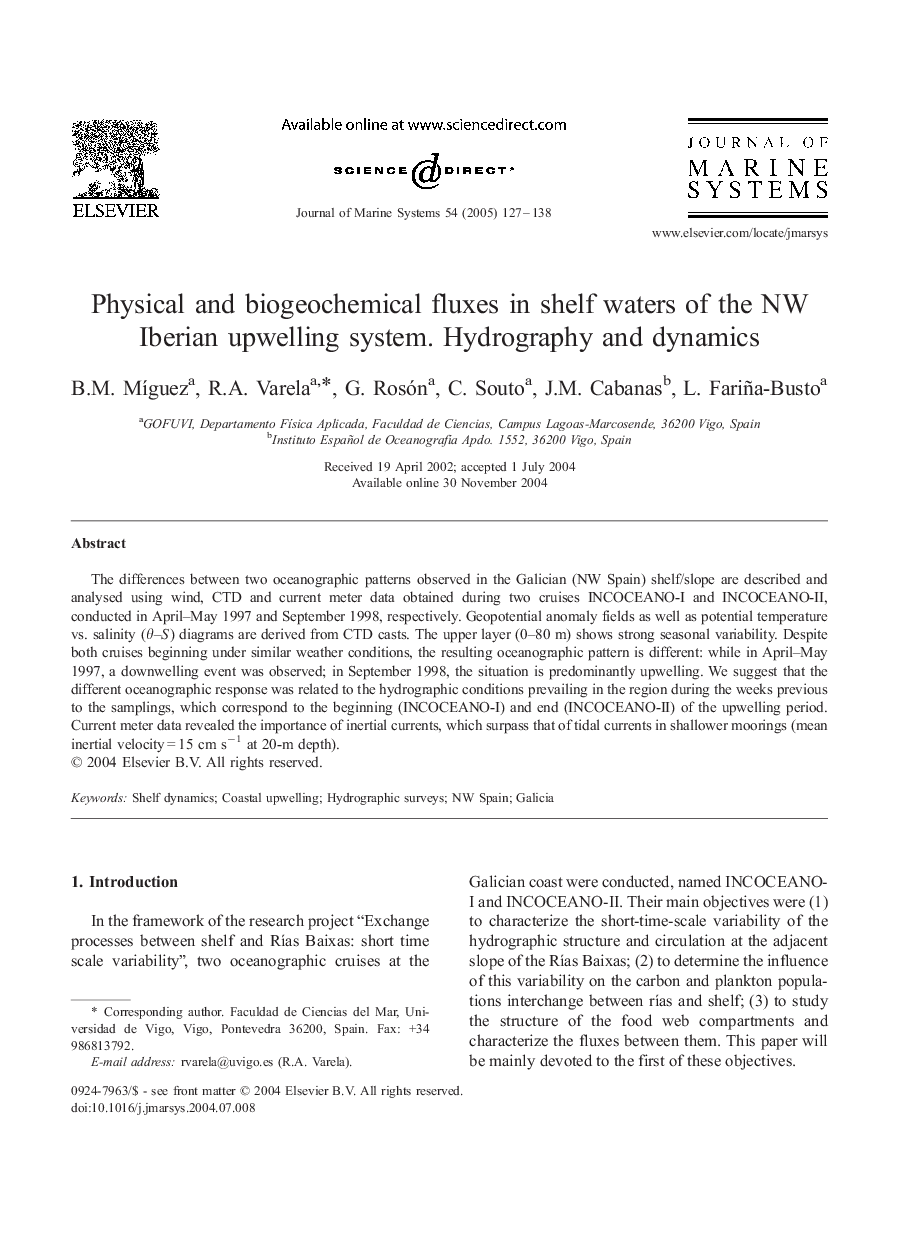| Article ID | Journal | Published Year | Pages | File Type |
|---|---|---|---|---|
| 9483445 | Journal of Marine Systems | 2005 | 12 Pages |
Abstract
The differences between two oceanographic patterns observed in the Galician (NW Spain) shelf/slope are described and analysed using wind, CTD and current meter data obtained during two cruises INCOCEANO-I and INCOCEANO-II, conducted in April-May 1997 and September 1998, respectively. Geopotential anomaly fields as well as potential temperature vs. salinity (θ-S) diagrams are derived from CTD casts. The upper layer (0-80 m) shows strong seasonal variability. Despite both cruises beginning under similar weather conditions, the resulting oceanographic pattern is different: while in April-May 1997, a downwelling event was observed; in September 1998, the situation is predominantly upwelling. We suggest that the different oceanographic response was related to the hydrographic conditions prevailing in the region during the weeks previous to the samplings, which correspond to the beginning (INCOCEANO-I) and end (INCOCEANO-II) of the upwelling period. Current meter data revealed the importance of inertial currents, which surpass that of tidal currents in shallower moorings (mean inertial velocity=15 cm sâ1 at 20-m depth).
Related Topics
Physical Sciences and Engineering
Earth and Planetary Sciences
Oceanography
Authors
B.M. MÃguez, R.A. Varela, G. Rosón, C. Souto, J.M. Cabanas, L. Fariña-Busto,
